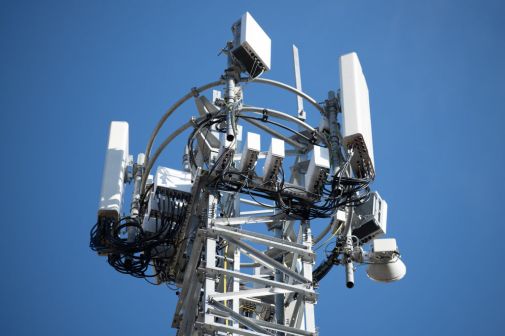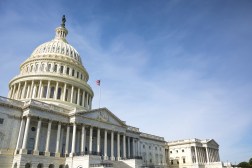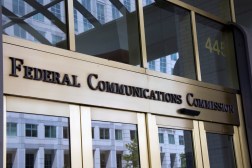Net Neutrality: Third time’s the charm?
The debate over net neutrality existed long before the attention it has garnered during the past year. In fact, there has been 10 long years of debate, regulatory decisions and litigation. For consumers, 10 years is a long time to wait for basic consumer protections for an open Internet. Now that the Federal Communications Commission’s net neutrality order is out and has begun to face legal challenges, perhaps it’s time for a different approach.
In late February, after a record-breaking public comment period and extensive deliberation in Washington, D.C., and beyond, the FCC’s five commissioners voted 3-2 in favor of applying public utility regulations to the Internet. Known as Title II, this decision was a departure from the less rigid regulatory approach to Internet regulation taken in years past, during which time the World Wide Web had been largely free of government oversight.
When the commission released the Open Internet Order to the public, there were countless questions from Capitol Hill and the private sector — including broadband and telecommunication service providers, independent activists, thought leaders, academics, economists, consumer advocates, and others. Various congressional committees, namely the House and Senate Commerce Committees, have since hosted several hearings as attempts to define what the order means and what it does.
Those who are opposed to using Title II of the Communications Act as a basis for Internet regulation argued that the unbridled success of the Internet is almost entirely due to the flexibility parties have had to innovate and evolve their services in the largely unregulated environment in which the Internet operates. As a result, the private sector had incentive to invest and improve Internet access and the broadband services that faster Internet enables. They argue that increased government intervention in business dealings between parties across the Internet value chain would likely diminish the investment incentives that have thus far attracted billions of dollars to building digital infrastructure.
On the other hand, proponents of the FCC’s decision to use Title II as the basis for its open Internet rules maintain that Internet traffic won’t be treated equally in the absence of Title II.
No matter how you slice it, as many questions remain now that the FCC has released its rules as existed before. What seems to have been overlooked in what has become one of the most divisive and partisan battles witnessed at the FCC is the order’s overall impact on consumers.
One of the conversation’s missing pieces has been a lack of emphasis on closing the digital divide. It’s unfortunate that most of the voices in this debate did not also speak out to promote the concerns on behalf of the many American consumers who still have not adopted broadband services. The digital divide still exists for millions of older adults, low-income consumers, minorities and many others. We need the same passion from our advocacy community, regulators and Congress to help close this divide in order to bring the benefits of an open Internet to everyone.
To the FCC’s credit, during the open Internet proceeding they not only invited public comment, but they considered it and ultimately incorporated it into their final decision.
Still, the first two attempts to issue a net neutrality ruling during the past 10 years faced immediate legal backlash from the cable and telecom industry and were ultimately overturned in court. Now, with this net neutrality order we see the next round of litigation beginning. First out of the gate in 2015 are Alamo Broadband Inc. and USTelecom, both of which filed federal appeals to block the FCC from enforcing the order; and there could be more to come. The commission is facing a long uphill legal battle that could yield the same results in the courts as the last two attempts. And for that reason, it appears the third time may not be the charm for consumers.
Members of Congress have had an ongoing interest in how best to preserve a free and open Internet, and during the FCC’s decision-making process, frequently offered their input. Earlier this year, Senate Commerce Committee Chairman Sen. John Thune, R-S.D., and House Energy and Commerce Committee Chairman Rep. Fred Upton, R-Mich., introduced draft legislation that would provide a permanent congressional fix to the repeated legal battles over net neutrality. It maintains the crux of the commission’s order by proposing prohibitions on Internet service providers, or ISPs, from blocking, slowing or throttling content.
Though the bill initially lacked bipartisan support, Democrats are beginning to come forward. During a recent Senate vote on the Budget, Sens. Thune and Bill Nelson, D-Fla., co-sponsored an amendment that was successfully adopted. The bipartisan amendment, although nonbinding, includes language that expresses support for open Internet rules. It’s an encouraging first step that demonstrates Congress’ willingness and interest to compromise to reach a bipartisan legislative solution.
Despite historic differences regarding how to protect an open Internet, neither Republicans nor Democrats want to continue the seemingly never-ending litigation over the legal basis for the rules. Telecommunications policy analyst Paul Gallant explained, “Democrats would like to lock net neutrality into a litigation-proof statute. And Republicans really want to eliminate Title II. So that’s a good starting point.”
A good starting point indeed. A window of opportunity exists for policymakers on Capitol Hill to reach across the aisle and establish long-standing bipartisan legislation to establish statutory net neutrality consumer protections. The Internet offers so much to so many — distance learning, professional development, job training, civic engagement, entertainment and news — and it is crucial that we do whatever we can to make sure these benefits know no bounds. This could be a truly historic moment to create consumer protections that will not be undone by litigation or a shift in partisan leadership at a regulatory agency.
Their legislative efforts will be a win for Congress, but more importantly, a win for consumers.
Debra Berlyn is the president of Consumer Policy Solutions.




